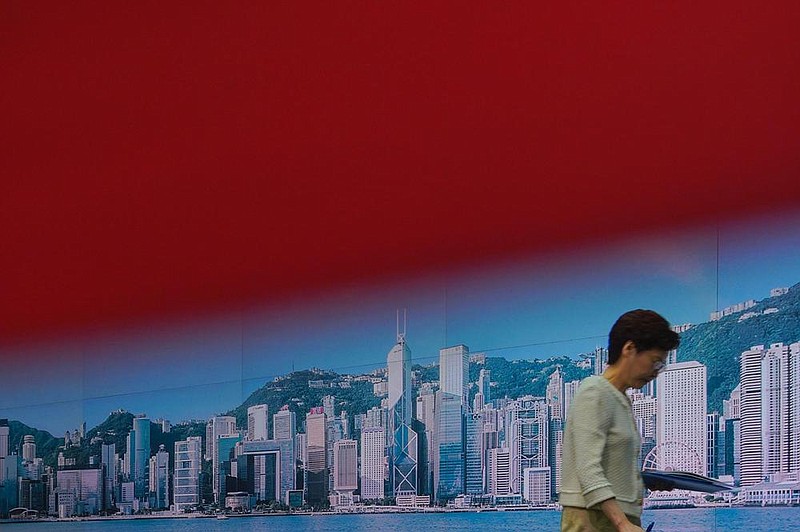HONG KONG -- Hong Kong's leader, Carrie Lam, offered scant reassurance Tuesday over a new national-security law that critics say undermines liberties and legal protections promised when China took control of the former British colony.
A year ago, Hong Kong residents felt secure enough in their freedoms under the territory's "one-country, two-systems" system to take their children to mass protests. Now, after the June 30 implementation of the security law, some are worrying they might be punished for what they post on Facebook Twitter or even TikTok.
Short-form video app TikTok, which has sought to distance itself from its Chinese roots -- it is owned by Chinese internet giant ByteDance -- said Tuesday that it will stop operations in the city "in light of recent events."
Hong Kong was promised 50 years of semiautonomy after the July 1, 1997, hand-over. That allowed the city's 7 million residents to keep a free press and other freedoms forbidden in the communist-ruled mainland.
Many of Hong Kong's older generations fled political upheaval on the Chinese mainland. Younger Hong Kong residents grew up expecting to achieve more democracy in their lifetimes. All are struggling to understand the implications of the new law, which prohibits what Beijing views as secessionist, subversive or terrorist activities or as foreign intervention in the city's internal affairs.
[Video not showing up above? Click here to watch » https://www.youtube.com/watch?v=gxRG_N1T_q0]
"I didn't have a strong view against formalizing a national-security law but the way it was implemented is intrusive and disrespectful," said Jen Au, who works in the banking industry. "It's basically just bullying. Hong Kong has come a long way in the last 20 years to warm up to China and this really just backfired."
Lam, the city's Beijing-backed chief executive, said Tuesday that the work of the Committee for Safeguarding National Security she chairs, which oversees enforcement of the law, will not be made public. So implementation rules giving police sweeping powers to enforce the law won't be subject to judicial review.
Asked if she could guarantee that the media still can report freely in Hong Kong without facing censorship, Lam said, "If the Foreign Correspondents Club or all reporters in Hong Kong can give me a 100% guarantee that they will not commit any offenses under this national legislation, then I can do the same."
Hong Kong was convulsed with large, sometimes violent anti-government demonstrations for much of last year.
Initially, the protests were against extradition legislation, since withdrawn, that might have led to some suspects facing trial in mainland Chinese courts. But the protests expanded to encompass calls for greater democracy and more police accountability.
[Gallery not loading above? Click here for more photos » arkansasonline.com/78hongkong/]
Critics see the security law as Beijing's boldest move yet to erase the divide between Hong Kong's Western-style system and the mainland's authoritarian way of governing.
Under the new law police can order social media platforms, publishers and internet service providers to remove any electronic message published that is "likely to constitute an offense endangering national security or is likely to cause the occurrence of an offense endangering national security."



